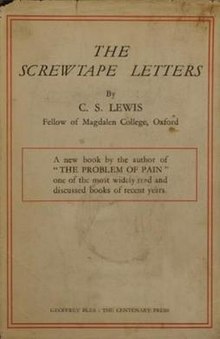Dexter Morgan, the fictional character on the popular Showtime series, Dexter, is a forensic blood splatter analyst for the Miami Police homicide department. Those who watched the eight seasons (as I just binge watched) know that Dexter is a sociopath with supposedly no feelings or conscience. He refers to his murderous impulse as his “dark passenger.”
But Dexter’s adopted father, a police officer named Harry, began teaching Dexter a code in his adolescent years. The “Code of Harry” constructs an ethical paradigm that guides Dexter through a life that gives in to the “dark passenger” when the results are best for overall society. This moral code allows Dexter to murder those who are themselves unethical murderers.
Dexter’s ethics are prescriptive. The prescriptive methodology of doing ethics employs a deductive approach based on a code of morality under the assumption that the truth of the code leads to correct praxis, or actions. This methodology is normative among conservative Christians, specifically Baptists. Basically, this ethical paradigm believes in a Truth that is revealed in some text. For many Baptists, the Bible is that text. The ethical praxis one engages in is derived from the “truth” of the Bible. Other religions have other texts upon which the ethical is determined; i.e., Muslims have the Koran.
Of course, this ethical motif is not restricted to the religious. Our entire government is based on the prescriptive motif that the U.S. Constitution is the “truth” and the Supreme Court is the official interpreter. Even if you disagree with that interpretation, it becomes the law of the land until the Congress decides to amend the “truth,” the Constitution.
Dexter was an ethical and moral serial murderer because he followed the truth of Harry’s Code, taught to him before the death of his adopted father. It matters little if you agree with his code or not; for him, it made his actions ethical and gave his life purpose.
Likewise, it matters little if others agree with the Bible’s Code; it is what makes Baptists ethical and gives life meaning. No, I’m not comparing Bible followers to serial murderers. Or am I? When we look at the body count resulting from the action of Bible believers, we have to ponder if our code allowed us to also be ethical murderers. We cannot ignore the Crusades, the Inquisition, the religious wars of Europe, genocide — from independent women burned as witches, to indigenous people under the rule of the sword and cross, to homosexuals in Africa today who are being killed in an attempt to literally follow the Bible (Leviticus 20:13).
One of the problems with the prescriptive motif is what happens when the code contradicts itself. Dexter faced this dilemma when the code stated “Never get caught” and “Only kill those who deserve it (murderers).” This led Dexter to, at times, kill non-murderers to avoid being caught — for example, the episode in which he prepares the murder of Captain LaGuerta (even though someone else pulls the trigger).
Likewise, what do we do with contradictions within the Bible? How do we reconcile the call for genocide in the Book of Joshua with the call to follow the Prince of Peace that leads to a cross? And while we may claim to follow peace, in reality — as our U.S. Puritan ancestors demonstrated — we lean toward genocide. We may claim to follow St. Paul’s admonition to put the needs of others before ourselves, yet follow the capitalist mantra of putting one’s self-interest first.
An equally important question is who gets to interpret the Bible. Dexter is constantly in conversation (prayer?) with his dead father to better understand the Code. Sound familiar? But is Harry really responding to Dexter’s prayers or is Dexter simply putting into the mouth of his father what he wants to hear and do? As I always say, I believe the Bible to be true, I just don’t believe your interpretation of the Bible is always true.
Does Dexter’s Code or the Baptist’s Bible become an excuse to participate in unethical, if not immoral, acts? How many Bible-believing Southern Baptists, quoting chapter and verse, justified slavery? How do we know we are not doing the same today, justifying immorality because it benefits us?
All too often we fuse and confuse our interpretation of what we think the Bible says with what the Bible actually says. Hence, using the Bible we make women men’s private property, or we justify discrimination and persecution of gays and lesbians. How much of what we call ethical is really, like Dexter, feeding the urges of our “dark passenger.”
No evil ever dreamed-up by Satan can outdo the atrocities committed by good, decent people attempting to purge evil forces from this world through the implementation of biblical truths. Some of the most immoral, unethical, diabolical actions, enough to make the very demons of Hell cringe in shame, are committed by those following the code of the Bible in the spiritual battle against the forces of evil.
Maybe that great modern-day theologian, Woody Allen, said it best: “If Jesus Christ came back today and saw what was being done in his name, he’d never stop throwing up.”
First Published in Baptist News Global


